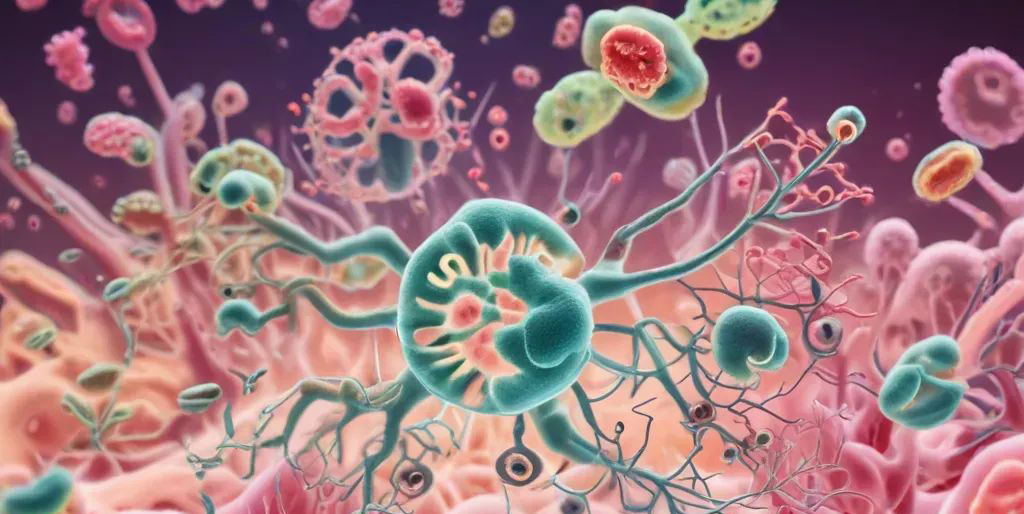M.Sc. Microbiology

About
About
Our long-running M.Sc. Microbiology course is ideal if you are a graduate or professional looking to develop or enhance your skills as a microbiologist.
The course is unique because you will spend much of your time in the laboratory, learning how to be a hands-on microbiologist. Students will cover molecular aspects of microbiology and immunity to infection, incorporating traditional and current methods of laboratory diagnosis, treatment, epidemiology, and management of infection.
DURATION
M.Sc. Microbiology is a 2-year PG degree course (including 6 Months Dissertation) which is focused on the study of microorganisms and advance learning.
SCOPE
After the completion of the degree the student can choose to continue further studies and pursue a Ph.D. or M.Phil. Microbiology or applying for jobs can be another option. There are various fields in which jobs can be found such as agriculture, dairy, fishery, chemical technology etc.
ELIGIBILITY
B.Sc. in Biotechnology/Microbiology or equivalent degree from a recognized University/College. Candidates must have scored at least 45% Marks (40% for reserved categories) in the qualifying examination.
Why Choose This Course?
An M.Sc. in Microbiology in India opens up various career avenues in both the public and private sectors. Here's an overview of the scope:
Research Institutes: M.Sc. Microbiology graduates can pursue research positions in government-funded research organizations like the Indian Council of Medical Research (ICMR), the Council of Scientific and Industrial Research (CSIR), and the Indian Institute of Science (IISc).
Pharmaceutical Industry: The pharmaceutical industry is one of the major employers of microbiologists. Graduates can work in research and development (R&D), quality control, and production departments of pharmaceutical companies. Roles may involve drug discovery, formulation development, and ensuring compliance with regulatory standards.
Biotechnology Sector: With the rapid growth of the biotechnology sector in India, there are numerous opportunities for microbiologists. They can work in biotech companies engaged in areas such as bioprocessing, microbial genetics, and industrial microbiology. Roles may include microbial fermentation, enzyme production, and genetic engineering.
Food and Beverage Industry: Microbiologists play a crucial role in ensuring the safety and quality of food and beverages. Graduates can find employment in food processing companies, breweries, dairy farms, and regulatory bodies. They may work in microbiological testing, food safety auditing, and product development.
Environmental Sector: Microbiologists contribute to environmental conservation and sustainability efforts. They can work in environmental consulting firms, government agencies, and research organizations. Roles may involve monitoring microbial pollution, bioremediation of contaminated sites, and wastewater treatment.
Government Sector: Microbiologists can find job opportunities in government departments related to health, agriculture, and environment. They may work in research institutions, regulatory bodies, and public health agencies.
JOB Opportunities after M.Sc. Microbiology
Research Institutes: Microbiology graduates can pursue research positions in government-funded research organizations like the Indian Council of Medical Research (ICMR), Council of Scientific and Industrial Research (CSIR), and Indian Institute of Science (IISc).
Pharmaceutical Industry: The pharmaceutical industry is a major employer of microbiologists. Graduates can work in research and development (R&D), quality control, and production departments of pharmaceutical companies.
Biotechnology Sector: Microbiologists can find job opportunities in biotech companies engaged in areas such as bioprocessing, microbial genetics, and industrial microbiology.
Food and Beverage Industry: Microbiologists play a crucial role in ensuring the safety and quality of food and beverages.
Clinical Laboratories: Microbiology graduates can find job opportunities in clinical diagnostic laboratories, hospitals, and healthcare facilities.
Government Sector: Microbiologists can find employment in government departments related to health, agriculture, and environment.
Academia and Teaching: Many M.Sc. Microbiology graduates opt for further studies (Ph.D.) and pursue careers in academia as professors, researchers, or lecturers.
Biomedical Research: Microbiology graduates can work in biomedical research institutions, hospitals, and pharmaceutical companies involved in infectious disease research, vaccine development, and antimicrobial therapy.
Apply Course:
M.Sc. in Microbiology equips graduates with the knowledge and skills to pursue diverse career paths in fields related to microbiology, biotechnology, healthcare, and environmental science. Continuous learning and staying updated with advancements in the field are essential for career growth and professional development.

